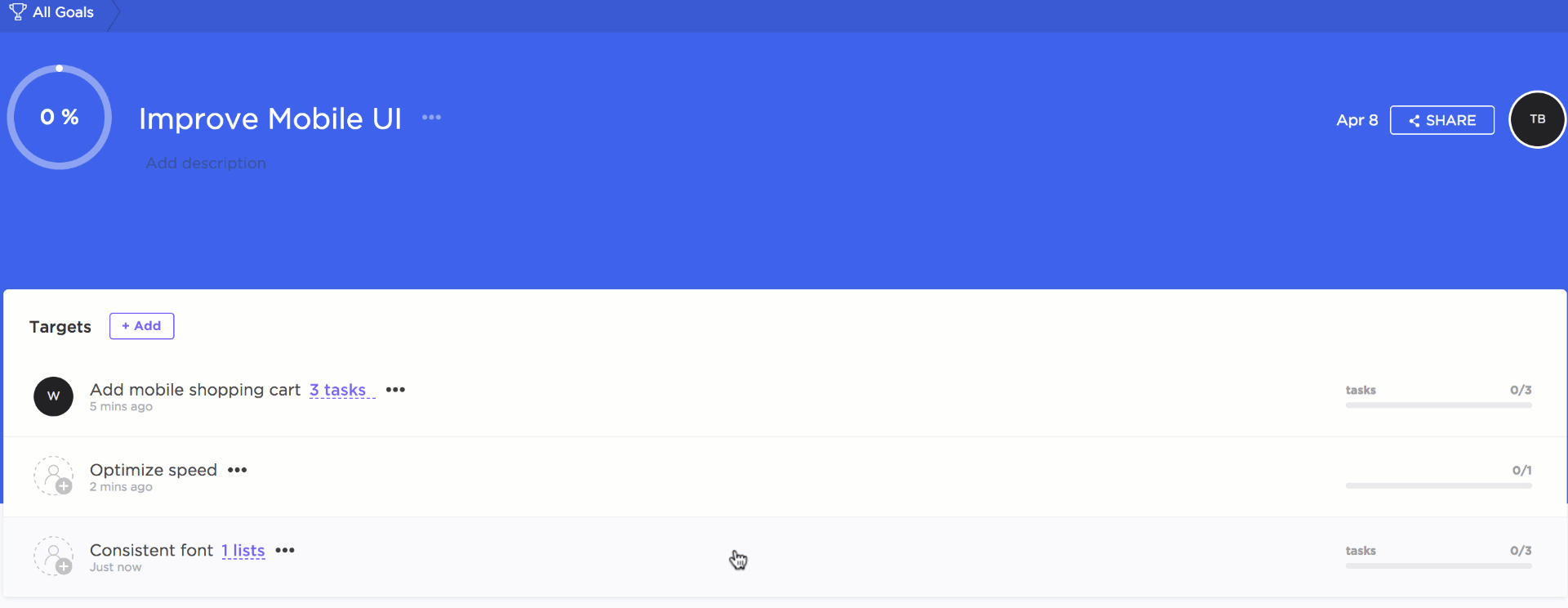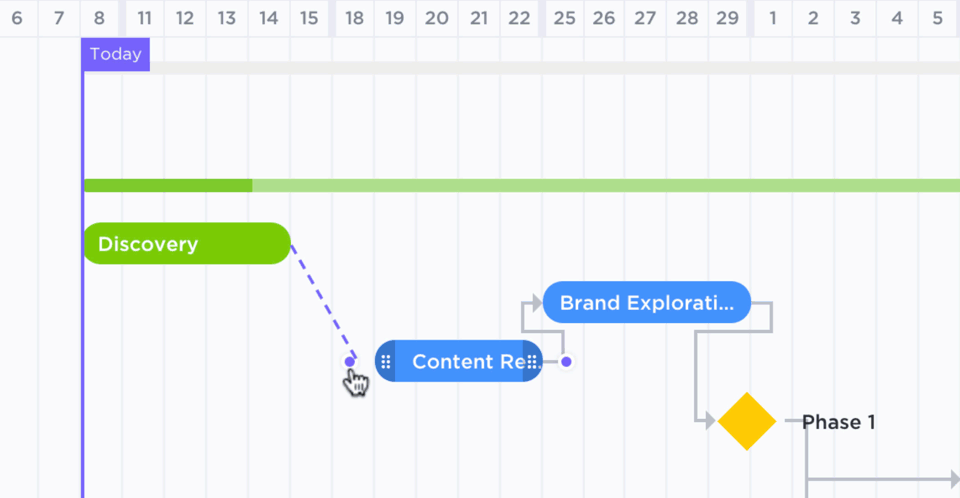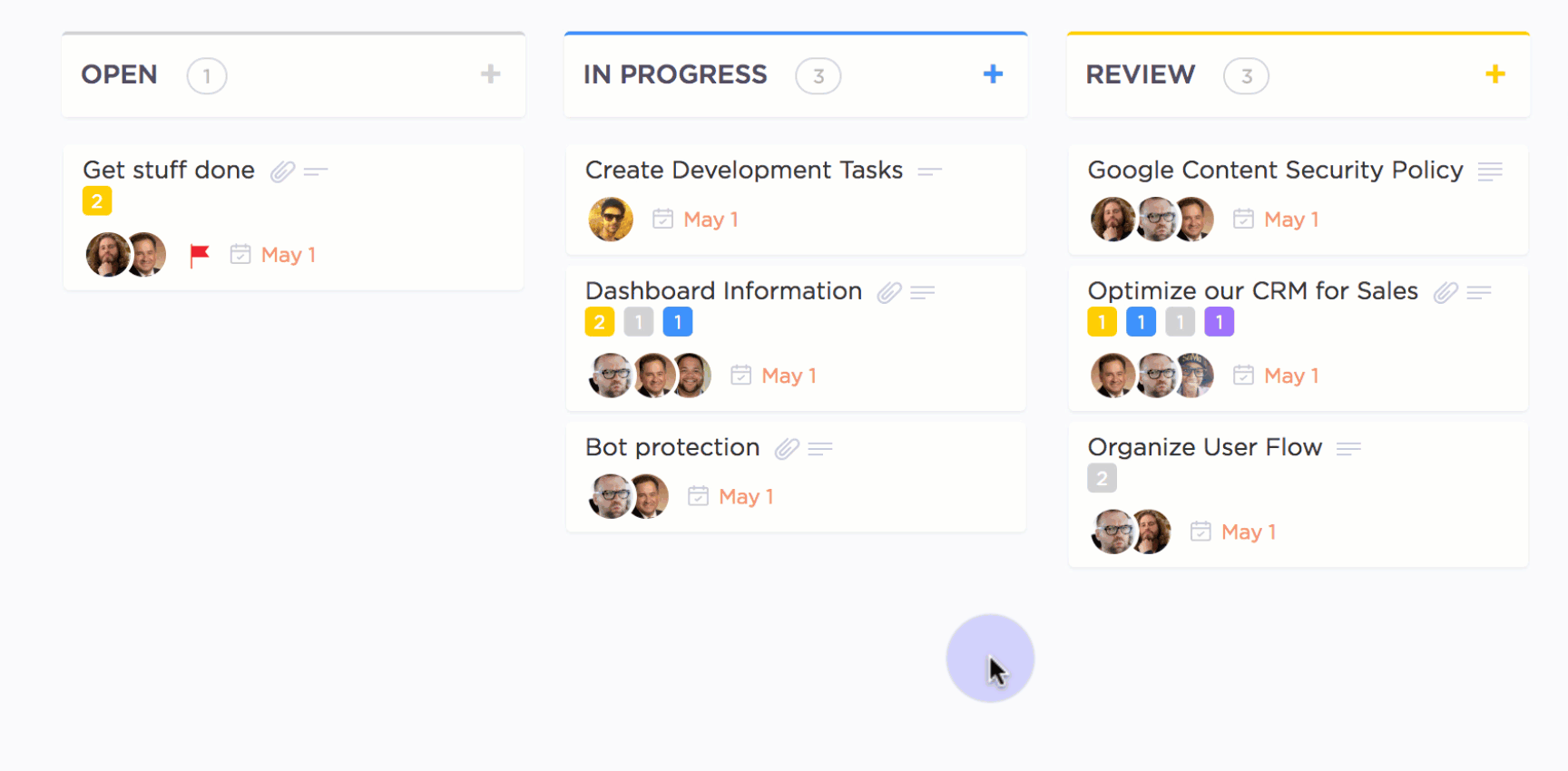50 Agile Scrum Terms Everyone Must Know (Detailed Glossary)

Sorry, there were no results found for “”
Sorry, there were no results found for “”
Sorry, there were no results found for “”

Looking for a comprehensive Agile glossary?
Even though Agile has barely been around for 2 decades, it’s had a major impact on the world of software development.
Need proof?
Today, 86% of all developers use the Agile method in their work!
Since millions of in-office and virtual teams use Agile, it has evolved over the years, spawning multiple Agile principles, methodologies, and practices.
As a result, Agile teams created their own Agile terminology to manage all these principles and practices.
And since nothing in software development is ever easy, these words can sometimes sound like they’re from another language entirely!
Don’t worry, though.
In this Agile glossary, we’ll explain 50 key Agile terms that will help you decode this software development methodology.
Now let’s start flipping through this Agile terminology dictionary, shall we?
Acceptance criteria are a set of conditions that software must meet in order to be accepted by a customer or stakeholder.
And how are these conditions decided?
It’s all up to the product owner. They need to determine whether the feature is doing what the users want it to do (user story).
Client accepted
Definition of Done (DoD)
Bonus: Storyboarding templates
An acceptance test ensures that a software feature is working correctly and meets the acceptance criteria. It’s usually run after the software has been developed.
User test, functional test
The Agile Manifesto is a document that sums up the 12 Agile principles that guide the Agile framework.
Every Agile methodology strictly follows the principles and practices outlined in the Agile Manifesto.
None
It’s a marketing technique that borrows heavily from Agile practices and values. Agile marketing professionals work in sprints so that their team can complete high-value projects in a very short period of time.
After each sprint, they measure how well their project has fared, and see what changes they can make in order to improve their performance in the next sprint.
Agile marketing is also a great way for your marketing team to respond quickly to the rapidly changing markets we see today.
None
An Agile mindset is a set of attitudes that an Agile or Scrum team should have towards their work.
These attitudes are inspired by Agile values and principles, such as:
How do you develop an Agile mindset?
An Agile practitioner or an Agile coach can help your team embrace Agile.
None
An Agile principle is a guiding practice that helps teams understand and adopt Agile.
There are 12 Agile principles that revolve around customer satisfaction, increasing the speed of software development, and flexibility.
Take a closer look at all the 12 Agile principles.
None
An Agile Release Train is a combination of multiple Agile software development teams used to tackle large enterprise-scale projects.
Think it of as a mega Scrum team!

On average, it consists of around 50-125 team members working together on different parts of the project. Just like a Scrum team, an Agile Release Train works in short bursts called iterations.
However, their iterations (called program increments) are 5x the length of a regular iteration!
They are an essential part of the Scaled Agile Framework.
ART
Agile Software Development is a project management technique that allows developers to create a working software model in just a few weeks.
Wait, isn’t this too fast? How is this possible?
An Agile team breaks down in their project into smaller development cycles called iterations or sprints.
At the end of the iteration, the Agile team is able to deliver working software with just the essential features. Users give their feedback and suggestions, and the Agile team includes it in future iterations, like us!
This cycle continues until you’ve created a final software that delights your customers.
Over the years, it has split into different frameworks and methodologies like Scrum, Kanban, Lean, and XP.
Just like how some prefer cereal, while others like bacon and eggs for breakfast, different teams have different tastes when it comes to the Agile framework!

Want to learn more about the varied flavors of Agile? Click here.
Also watch this video to see how Agile can be applied in multiple fields, not just software development:
Agile Software Management, Agile project management, Agile methodology, Agile method, Agile approach, Agile way
Agile transformation is the process of transitioning your entire organization to adapt to the Agile mindset.
This involves creating a work environment that supports innovation and flexibility. It also allows your project team to be cross-functional (having members with different skill sets).
Note: Agile transformation does not mean teaching your team to use Agile software development methodologies.
None
Bonus: Read our guide on Agile Scrum artifacts! 💜
It’s a list of new product features, updates, bug fixes, etc. that are required by the user.
At the start of every iteration, the product owner decides which backlog items the team needs to work on. After every iteration, the backlog is regularly updated with user suggestions and new features.
Product backlog, sprint backlog
It’s a Scrum meeting where the Scrum team organizes the backlog to make sure it’s ready for the next sprint or iteration. In other words, it’s like spring cleaning… but for Scrum teams!

It is normally held at the end of the sprint.
Here’s what the team does during this meeting:
Backlog grooming
Bottlenecks are issues that can completely slow down the development process.
Let us explain:
A sprint task goes through multiple stages during the development process, such as: ‘To do’, ‘In Progress’, ‘Review’. A bottleneck occurs when too many tasks are stuck at one stage, like a traffic jam of project tasks!
As a result, the project workflow slows to a crawl, something that you wouldn’t want in a quick Agile process!

No one likes traffic jams, right?
That’s why an Agile team usually uses a Kanban board to prevent this from happening.
Obstacle, impediment
A burndown chart is an important chart that helps Agile project managers track:

The x-axis represents the time left in a sprint, and the y-axis represents the number of tasks.
An Agile project management tool like ClickUp can provide a projected progress line that highlights how project progress would look like if your team works at the same pace.
Release burndown chart, sprint burndown chart
📮ClickUp Insight: Low-performing teams are 4 times more likely to juggle 15+ tools, while high-performing teams maintain efficiency by limiting their toolkit to 9 or fewer platforms. But how about using one platform?
As the everything app for work, ClickUp brings your tasks, projects, docs, wikis, chat, and calls under a single platform, complete with AI-powered workflows. Ready to work smarter? ClickUp works for every team, makes work visible, and allows you to focus on what matters while AI handles the rest.
A burnup chart an important chart that helps project managers visualize:

The x-axis represents the time remaining in the sprint, and the y-axis represents the quantity of work (story points).
Here, the green line represents the work the Scrum team has completed so far, and the grey line represents work that’s left to be done.
None
Continuous integration is an Agile practice where developers constantly add their code to the main system.
How does it work?
Development professionals work independently on a feature. Once a feature is completed, it’s tested for any bugs.
Only after it’s passed the automated test is it added to the final software.

Continuous delivery, CI
It’s a daily meeting usually hosted by the Scrum master. Every morning, the Scrum team gets together for 15 minutes to discuss their day ahead.
Each member briefly talks about the following topics:
The Scrum master steps up to solve any impediments the Scrum team might have.
Note: Scrum team members should be standing up for the entire duration of this Scrum meeting.

Yes, Keanu!
It keeps the team focused and alert during this short Scrum meeting.
Daily standup, Daily Scrum meeting
Bonus: Types of Meetings!
It’s a business-oriented Agile framework that focuses on the entire project from start to finish. The core belief of DSDM is that the work done on the Agile project should align with the strategy of the company.
None
An epic is a big idea or feature that can be broken down into smaller user stories. Much like how large ‘epics’ like Lord of the Rings are split into 3 books.
For example: an epic called ‘Improve Mobile UI’ can consist of 3 user stories: ‘Add mobile Shopping Cart’, ‘Optimize Speed’, and ‘Consistent Font’.
Each user story, in turn, can be broken into manageable tasks.
Here’s how an epic looks like in ClickUp:

Because of their size, epics are delivered over multiple iterations.
Epic stories
It’s a horizontal bar chart that visualizes the sequence of tasks within the project timeline. Each task has a start date and end date so that your team doesn’t exceed deadlines.
Use a Gantt chart to see what tasks are dependent on each other.

Learn more about Gantt Charts!
Project timeline
It’s an obstacle that reduces an Agile team’s productivity or prevents them from completing an Agile project altogether.
For example:
Communication issues, distractions at the workplace, hangovers after a team outing 😉, etc.
During a Scrum meeting, it’s the Scrum master’s responsibility to remove any impediments that a team may have, even if it involves treating them with a hangover cure!

Roadblocks, issues
It’s a period of time in which an Agile team needs to develop working software. An iteration generally lasts for around 2-4 weeks for Kanban and Scrum teams.
Sprint, timebox
It’s a highly visual Agile framework.
Instead of working in fixed and planned iterations like in Scrum, Kanban teams work on priority tasks whenever they come in. The goal of Kanban is to have a constant stream of work without any bottlenecks.
How do they do that?
Teams add a limit to the number of tasks that can be worked upon simultaneously (known as WIP limit), so the team doesn’t multitask and slow down productivity.
Planning to supercharge your team’s productivity? Click here to learn how ClickUp can help you set up Kanban project management.
None
A Kanban board visualizes all the work within the project.
It’s a physical or visual cork board that is split into 3-4 columns.
Each column in a Kanban board represents a status of the task, ranging from ‘To Do’, ‘In Progress’, and ‘Done’.
In Kanban, each task is visualized as a sticky note or card. Every time a team member finishes a task, the card is moved to the relevant column like so:

Neat, right? You can see 20 more examples of them here.
Task board, whiteboard, cork board
It’s a set of principles and practices that optimizes the development process. It was inspired by the lean manufacturing approach introduced by Toyota in the 50s.
Learn more about Lean project management and Lean principles in our dedicated articles.
Lean software development
A product backlog is Scrum terminology that refers to a list of new features, updates, bug fixes, etc. that are required by the user. The product owner is in charge of prioritizing items in the product backlog. They decide every product backlog item the team needs to work on at the beginning of each iteration.
Check out these product backlog tools!
Backlog
A product manager assists the Agile team with the development process from start to finish.
Their main responsibilities include:
Note: Product manager and Product owner are not interchangeable Agile terms.
Learn how product managers use ClickUp.
Project manager
Bonus: Check out our product management glossary!
They are the key members of an Agile or Scrum team.
They decide the vision and features of the final software, but the features are not chosen on a whim!

They carefully understand the customer’s needs and requirements and add those items to the product backlog.
But that’s not all!
They also receive feedback from the customers and relay it to the development team.
None
Refactoring is an extreme programming practice.
Here Agile software development teams ‘clean up’ the code by:
The result is a simpler code that could be understood by any developer.
Note: Refactoring doesn’t change how the code works; it just improves its internal structure and architecture.
Restructuring
A release plan showcases all the features to be included in the next release, along with an estimated release date.
It’s kind of like the movie trailer of an Agile project!

A release plan usually spans for a period of a few months.
None
It’s an Agile methodology that allows large companies to implement Lean and Agile practices throughout the organization. SAFe unites all software development teams within a company to work towards developing large enterprise-scale software.
How does it do this?
It organizes multiple Agile teams into a large team called Agile Release Train, so they can collaborate effectively.
Curious about Scaled Agile Framework? Click here to know more about this Agile method.
SAFe
Scrum is an Agile methodology in which a team works in short bursts of work ranging from 2-4 weeks, called sprints. At the end of the sprint, they deliver the product to the customers, and in turn, the customers give the developers their feedback.
What goes on in a Scrum sprint?
A Scrum team sets a rigorous plan for the sprint, so everyone knows what they have to do. Moreover, teams host regular Scrum meetings in order to manage processes within the sprint.
In the world of Agile, Scrum is the popular kid.
In fact, around 66% of Agile teams use Scrum or a form of Scrum!

Click here to learn more about this super famous Agile framework.
Scrumban is a hybrid Agile methodology that combines elements of, you guessed it… Scrum and Kanban!
It has the structure of Scrum and the continuous workflow of Kanban. This comes in handy when the Kanban team wants to follow a few Scrum practices, and the Scrum team wants to try out the Kanban method.
None
It’s a virtual or physical board that displays tasks that need to be done in a sprint.
The Scrum board is almost identical to a Kanban board.
But don’t be fooled!
Unlike a Kanban board, the Scrum board doesn’t have a limit on the number of tasks that can be in one column simultaneously.
For a closer look at the Scrum board, click here.
Task board, whiteboard, cork board.
The Scrum master is the leader of the Scrum. They organize meetings, remove impediments, and work with the product owner to ensure that the product backlog is up to date.
Note: They don’t boss their team members around.
Instead, they solve problems team members might have.

None
A Scrum meeting is an essential part of the Scrum framework. Without them, the sprint would have no structure or project plan in place!
There are five types of Scrum meetings that occur during the sprint.
Each Scrum meeting enables the whole team to do important sprint tasks like:
Want to take a closer look at Scrum meetings? Click here.
Scrum ceremonies, Agile ceremonies
It’s a special Scrum meeting for large Scrum teams.
Here, large Agile teams (more than 12 team members) are divided into smaller Scrum teams (around 5-10 members). Each small Scrum team designates one member as an ‘ambassador’.
Every day, all the ambassadors meet in the Scrum of Scrums to update their progress and resolve their issues.
Come to think of it, the Scrum of Scrums sounds more like a UN assembly with all these ambassadors!

Meta Scrum
It’s a cross-functional team of 5-10 individuals with different skill sets ranging from graphic design, UX, coding, etc. They work together to develop a product under the Scrum framework.
Each Scrum team usually contains 3 key roles:
Want to take a closer look at the different Scrum team members and their roles and responsibilities? Click here.
None
It’s another term for an iteration.
However, sprint is a Scrum term and is usually a phrase used by Scrum teams.
Another difference between the two is that sprints maintain a uniform length (2-4 weeks) during the Agile development process. Whereas, iterations can have varying lengths, depending on the nature of the work.
Timebox, iterations
It’s a list of features, bug fixes, user requirements, and tasks that the Scrum team needs to work on during the sprint.
During the sprint planning meeting, the product owner decides the backlog items need to be added to the sprint backlog.
Note: Once the sprint backlog has been set, it can’t be changed during the sprint.
Need tips on how to create a sprint backlog? Click here.
Iteration backlog
The sprint goal is the desired result the Scrum team wants to achieve during the sprint. In most cases, the end result is a working model of the software that can be shown to the stakeholders.
And how do teams achieve the sprint goal?
Scrum teams have to finish developing all the items in the sprint backlog before the sprint ends.
Agile project management tools like ClickUp have in-built features that can help you track your sprint goals in real-time:

Iteration goals
Sprint planning is a Scrum meeting where the Scrum team decides the work they need to do during the sprint.
This includes picking up items (like user stories) from the sprint backlog and breaking them down into smaller, more manageable tasks.
Note: A good sprint planning meeting often guarantees a successful sprint.
Sprint planning meeting, Agile planning meeting
A sprint retrospective is a Scrum meeting where the Scrum team analyzes their performance, at the end of the sprint.
The team uses Agile metrics, charts, and reports to see where they excel and where they need to improve.
Instead of manually tracking Agile metrics, Agile project management tools like ClickUp offer accurate graphs and charts to help your team power through a sprint retrospective.

Retrospective meeting
A sprint review is a Scrum meeting where the Scrum team demonstrates a working software model to the stakeholders.
Along with the product demo, the Scrum team prepares a presentation that outlines the new features added, bug fixes, and other changes.
At the end of the review, the stakeholder provides valuable feedback, which is implemented in the next sprint.
It’s a term that refers to anyone outside of the Agile team who is connected to the project. It could be an investor, account manager, sales team, or the client.
Learn more about stakeholders here.
None
It’s a measure of effort that your team would need to complete project tasks (user story).
How are they calculated?
Don’t worry, it’s not as complicated as algebra!

The time taken to complete the simplest user story is taken as the baseline and is given 1 point. Other user stories are assigned story points proportional to the baseline.
For example, if a feature that takes 2 hours to develop is given 1 point, then a feature that takes 4 hours receives 2 points.
None
It’s a generic Agile term that can refer to either a Kanban board or Scrum board.
Kanban board, Scrum board, Cork board, Whiteboard.
It’s a brief description of a specific product feature or a function that customers would find helpful.
A user story looks something like this:
‘As (user name/type), I want to (do a thing), so I can (achieve a goal).
For example:
Let’s say you’re tasked with developing an app for Batman!.
So a sample user story would be like:
‘As Bruce Wayne, I want to be able to get a ‘Bat Signal’ notification on my app, so I can save the day.’

During the sprint planning meeting, the product owner is responsible for breaking down a product backlog item into different user stories.
User goals
A work item is an Agile term that refers to the different types of work that needs to be done within the project.
Here are a few examples:
Work object
It’s a unit of measurement that determines the amount of work your team can handle during an iteration.
It’s measured by calculating the average number of tasks/user stories completed in a sprint. Agile teams use a velocity chart to do this.

None
Extreme Programming is a software development methodology in which a team has to complete a working software in 1-2 weeks, rather than the usual 2-4 week iteration.
Here all the conventional practices of the Scrum methodology are cranked up to an 11, so teams can quickly respond to the customer’s requirements.
Want to learn about this exciting Agile method? Click here.
Extreme Scrum
Remember the first time you rode a bike?
Learning Agile terminology is a lot like that!

They both seem complex and challenging at first glance.
But once you get familiar with them, it’s second nature!
And once you know how to ride a bike, you’ll start doing it more often, right?
Similarly, once you’ve learned Agile, you might be interested in applying the Agile methodology to your projects.
Lucky for you, Agile project management tools like ClickUp have all that you need to implement Agile!
ClickUp has tons of features to help you bring the Agile practices and methodologies mentioned in this article to life – like Agile Dashboards, Cumulative Flow Diagrams, Sprint Lists, and more.
So sign up today to master the A-Z of Agile!
© 2026 ClickUp